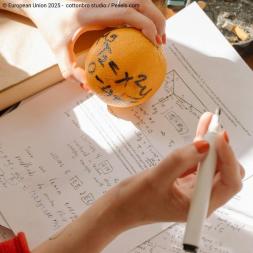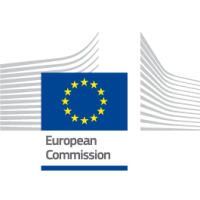
Beyond numbers: how mathematics shapes the world
Mathematics is more than numbers and equations—it shapes the world around us. From technology and environmental science to music and art, mathematics plays a fundamental role in problem-solving and innovation.
Description
Join the course on EU Academy: academy.europa.eu/courses/beyond-numbers-how-mathematics-shapes-the-world
This course is designed to help educators bridge the gap between abstract mathematical concepts and their real-world applications. Through engaging examples, case studies, and hands-on activities, participants will learn how to make mathematics more relevant, inspiring, and accessible for their students.
Enrol today and discover how mathematics shapes the world around us!
Learning objectives
- By the end of the course, participants will be able to:
- Identify real-world applications of mathematics across different fields, making maths more relevant to students.
- Apply mathematical concepts to practical, everyday challenges to develop problem-solving skills in the classroom.
- Explore how mathematics powers technology, including algorithms, data analysis, and cryptography.
- Examine the role of mathematics in environmental science, such as climate modelling and resource optimization.
- Discover connections between mathematics, art, and music to foster interdisciplinary learning.
- Develop critical thinking and analytical skills through hands-on activities and case studies.
- Communicate mathematical concepts effectively to diverse student audiences using engaging teaching approaches.
Methodology & assessment
Certification details
Upon successful completion of the course, a digital course certificate is awarded. The certificate shows the name of the learner and key course details such as the estimated learning hours, the learning objectives, and a link to the course homepage.
Additional information
-
Language:English
-
Target audience ISCED:Primary education (ISCED 1)Lower secondary education (ISCED 2)Upper secondary education (ISCED 3)
-
Target audience type:TeacherStudent TeacherHead Teacher / Principal
-
Learning time:15-20 hours
Past sessions
More courses by this organiser




